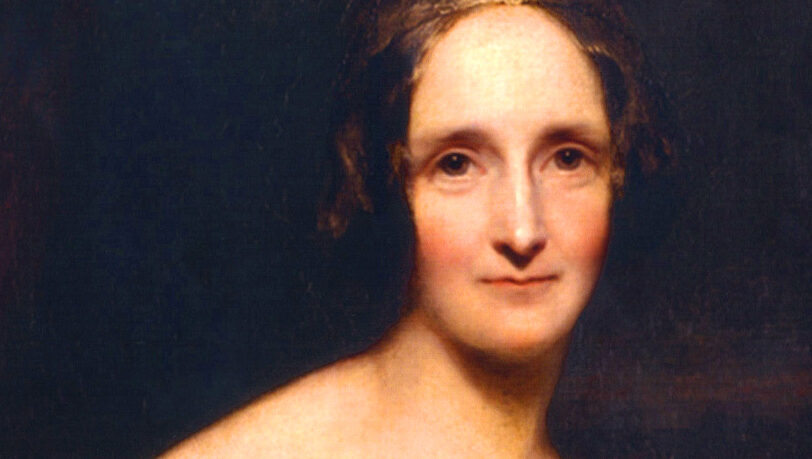It’s October, and we celebrate with a visit by Mary Shelly. Teen-age mother, behind-the-scenes supporter of social reform, romantic, and scholar, English writer Mary Wollstonecraft Shelley (1797-1851) may be best known as the author of Frankenstein, but there is much more to be learned about her, both personally and psychologically. As Mary reveals her process as an author in creating Frankenstein, you learn how she viewed the world around her and how, in turn, the world treated her.
In addition to a compelling personal story which would make many articles in The National Enquirer seem tame, Mary Shelley’s work raises ethical questions that are, if anything, more pertinent today than they were in her lifetime. Is humankind morally capable of managing its technological creations? What responsibility do we collectively hold in caring for abandoned members of society? Mary Shelley raises these questions within the context of having lived most of her life as an outsider.
Susan Marie Frontczak brings history and literature to life, creates stories from thin air, and hones personal experience into tales worth telling again and again. She was invited to create a living history of Mary Shelley in connection with a nationally traveling exhibit on Frankenstein. The exhibit was developed as a collaboration between the American Library Association and the U.S. National Library of Medicine. For Susan Marie, learning about Mary Shelley became a journey into the creative process. She bears witness to how Shelley’s own personal experiences inform a story that seems, from the outside, a fantastical invention. Mary’s imagination sublimates suffering into a challenge, probing what it means to be human.
Furthermore, for Susan Marie, Frankenstein represents coming full circle: In her early life, she delighted in the magical and supernatural of fairy tales. This was supplanted for a number of years by a career in the sciences and engineering. Frankenstein brings her back to the supernatural, albeit transformed into the possible by today’s tech wizardry and shadowed by the question mark of bioethical responsibility.
This program is hosted by Jefferson Humanists, a chapter of the American Humanist Association.
SCHEDULE
We will serve appetizers from 4:00 to 4:30, then start the program. A small donation is suggested for the food, and wine will be served for a $3 donation. The program will include announcements and a Humanist Moment before the presentation begins.
We hope to see you at 4:00 pm, on Sunday, October 22, at Jefferson Unitarian Church! It is an in-person-only event.
—————————————————————————————————
“The beginning is always today.” – Mary Wollstonecraft Shelley



